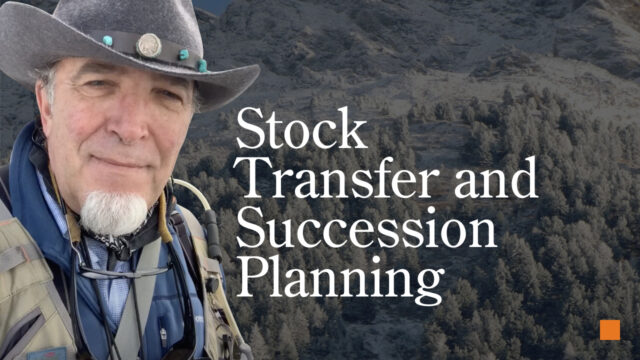
Overview
If you wait until the last minute to plan for selling your business to management, you might not get the full value for it. This is because you probably haven’t prepared the buyers for the lenders due diligence. Plus, if you rush the sale, you might not be able to negotiate the best deal, which could result in a lower selling price.
Generally, a last-minute sale mean that you have to accept payment in instalments instead of getting the full amount upfront. This can be risky because the buyer would have control, the business might not do as well as expected, which means you might get less money in the end.
To reduce these risks, it’s a good idea to plan for the sale of your business well in advance. You should talk to business succession experts who can help you prepare your business for sale, figure out how much it’s worth, and prepare a business succession plan to get the value you want.
Transcript
Hi, this is Byron speaking to you today
from the banks of the Rio Grande River,
just north of Taos New Mexico.
I want to talk to you today about
the cost of waiting.
The cost of waiting and preparing
yourself in your company for the orderly
transition of your ownership to your
management team means that if you wait
to put together a plan,
you end up assuming all the risk of
getting paid.
What I mean by that is that the most common
plan for transition to management is the
10-year seller finance installment note.
So, the seller who decides they want out of
their company calls their advisor.
The advisor asks “Does your buyer have any
money?”. The seller
suggests “No”, so the advisor says “well,
it’s like you’re going to finance it and
the most feasible terms in the
transaction like that is 10 years”. So, the
seller in effect gives up control or
near control of their company and in
return, gets one tenth of the value of
their company in the year in which they
give up control.
As opposed to thinking ahead five or
seven years and preparing your buyer to
become bankable, which means that when
you change control, you would receive
cash.
So the cost of waiting is the timing in
which you get your cash and the amount
of risk you have to take after you
transition control.
One of the rules of thumb in
transitioning control and its well
ordered succession plan is you don’t
transition control until you’ve realized
financial independence.








